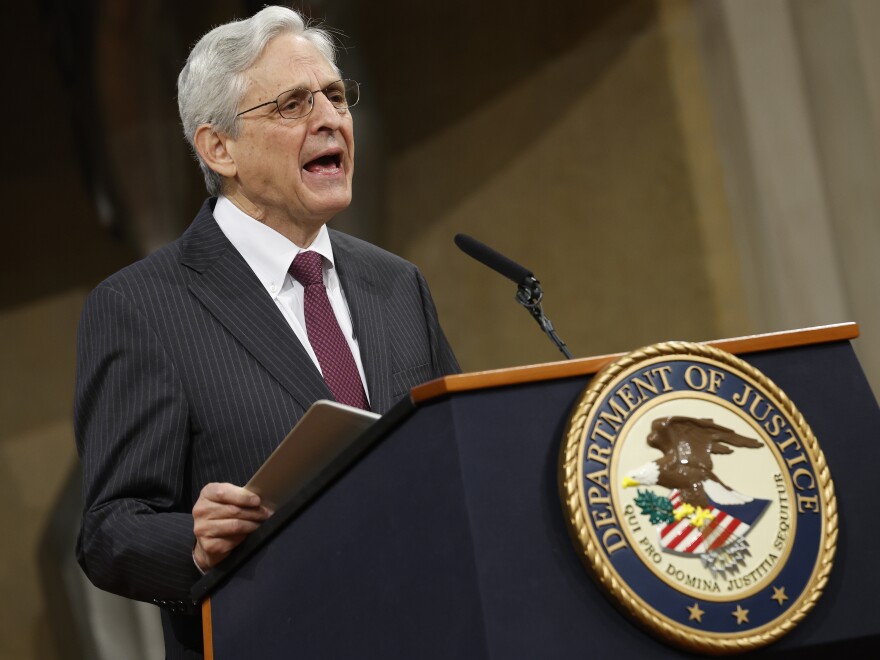The Justice Department is updating its use of force policy for the first time in 18 years, saying explicitly that federal officers and agents must step in if they see other officers using excessive force. The policy takes effect on July 19.
The new policy is outlined in a memo Attorney General Merrick Garland sent to senior Justice leaders on Friday. The rules apply to all agencies under the Justice Department, including the FBI, DEA, ATF and U.S. Marshals Service.
The rules emphasize de-escalation, and a duty to intervene
"It is the policy of the Department of Justice to value and preserve human life," the policy begins. It later adds, "Officers may use force only when no reasonably effective, safe, and feasible alternative appears to exist and may use only the level of force that a reasonable officer on the scene would use under the same or similar circumstances."
The policy's first portion deals with deadly force, barring tactics such as firing guns to disable cars. But the next section calls for de-escalation training, and the next two spell out situations in which officers have an "affirmative duty" — to prevent or stop other officers from using excessive force, and to render or call for medical aid when it's needed.
Law enforcement officers should be able to recognize and act on "the affirmative duty to intervene to prevent or stop, as appropriate, any officer from engaging in excessive force or any other use of force that violates the Constitution, other federal laws, or Department policies on the reasonable use of force," the policy states.
Scrutiny of police use of force has grown due to high-profile killings
The DOJ policy was announced days before the two-year anniversary of George Floyd's death — a police killing that set off a racial reckoning and calls for change in Minneapolis and across the nation. But it's worth noting that federal officers have not been involved in the vast majority of recent high-profile cases in which people of color died at the hands of local or state police.
Last month, for example, a Connecticut state trooper was charged with manslaughter over his killing of a Black man in 2020.
Garland said that the new rules draw on the 2020 National Consensus Policy on Use of Force — a document that was created in response to the public debate over police use of deadly force, after a spate of controversial incidents in which officers killed civilians. It reflects the views of 11 law enforcement leadership and labor groups, led by the International Association of Chiefs of Police and the Fraternal Order of Police.
The attorney general said the new policy also stems from changes in how federal law enforcement agencies have approached their work since 2004, when it was last updated. It sets out to standardize an agreed-upon set of best practices, as over time, individual agencies have been updating their own training programs on the use of force.
Along the way, the Justice Department has also issued incremental updates to its guidelines. Last fall, for instance, it banned the use of chokeholds and carotid restraint maneuvers "unless deadly force is authorized." It also limited the use of "no knock" warrants — a tactic that came under renewed scrutiny in the police killing of Breonna Taylor in Louisville, Ky.
Copyright 2022 NPR. To see more, visit https://www.npr.org.



